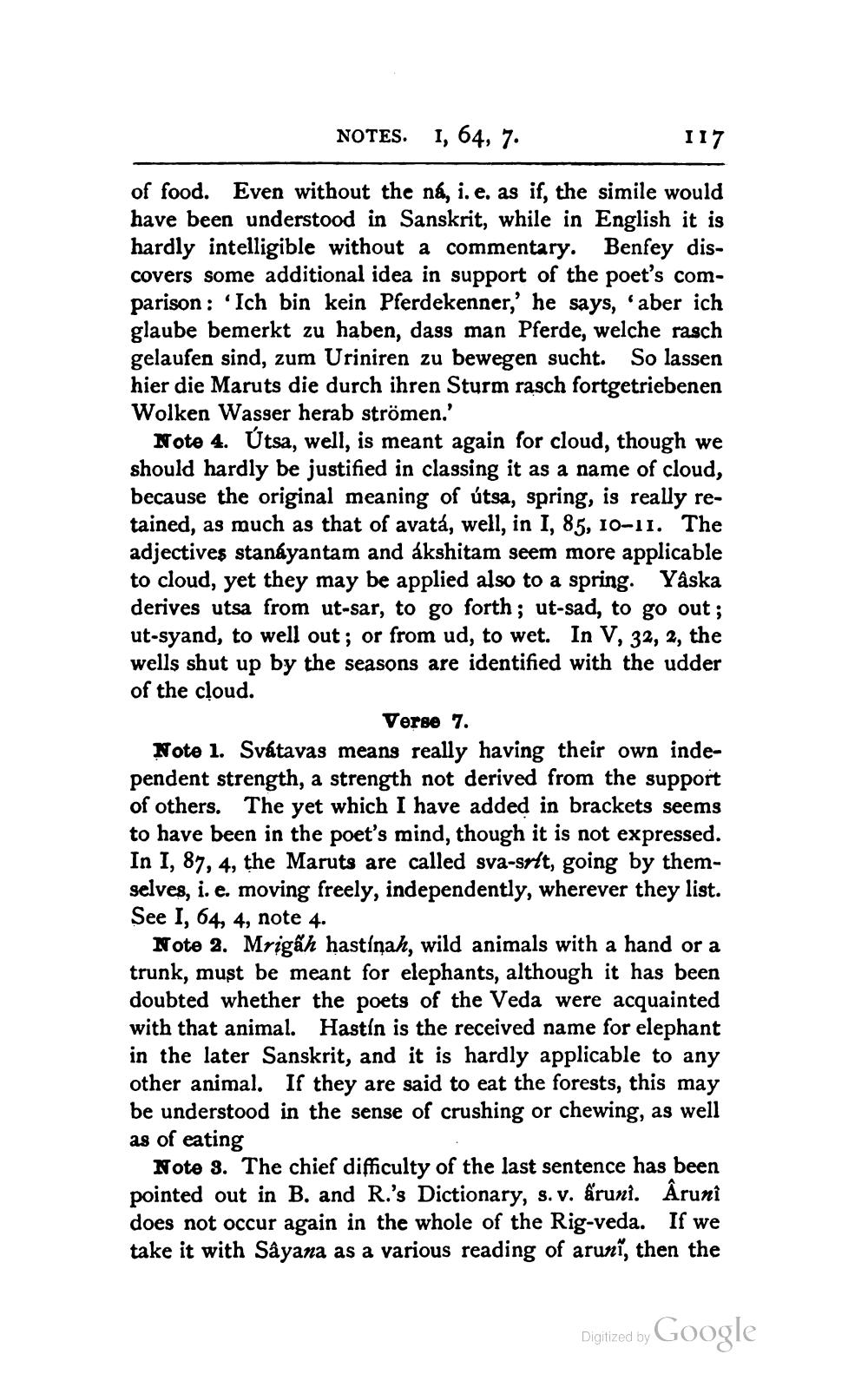________________
NOTES. 1, 64, 7.
117
of food. Even without the ná, i.e. as if, the simile would have been understood in Sanskrit, while in English it is hardly intelligible without a commentary. Benfey discovers some additional idea in support of the poet's comparison : "Ich bin kein Pferdekenner,' he says, aber ich glaube bemerkt zu haben, dass man Pferde, welche rasch gelaufen sind, zum Uriniren zu bewegen sucht. So lassen hier die Maruts die durch ihren Sturm rasch fortgetriebenen Wolken Wasser herab strömen.'
Note 4. Útsa, well, is meant again for cloud, though we should hardly be justified in classing it as a name of cloud, because the original meaning of útsa, spring, is really retained, as much as that of avatá, well, in I, 85, 10-11. The adjectives stanáyantam and ákshitam seem more applicable to cloud, yet they may be applied also to a spring. Yaska derives utsa from ut-sar, to go forth; ut-sad, to go out; ut-syand, to well out; or from ud, to wet. In V, 32, 2, the wells shut up by the seasons are identified with the udder of the cloud.
Verse 7. Note 1. Svátavas means really having their own independent strength, a strength not derived from the support of others. The yet which I have added in brackets seems to have been in the poet's mind, though it is not expressed. In I, 87, 4, the Maruts are called sva-srlt, going by themselves, i.e. moving freely, independently, wherever they list. See I, 64, 4, note 4.
Note 2. Mrigấh hastinah, wild animals with a hand or a trunk, must be meant for elephants, although it has been doubted whether the poets of the Veda were acquainted with that animal. Hastin is the received name for elephant in the later Sanskrit, and it is hardly applicable to any other animal. If they are said to eat the forests, this may be understood in the sense of crushing or chewing, as well as of eating
Note 3. The chief difficulty of the last sentence has been pointed out in B. and R.'s Dictionary, s. v. áruni. Aruni does not occur again in the whole of the Rig-veda. If we take it with Sâyana as a various reading of aruni, then the
Digitized by
Digitized by Google




